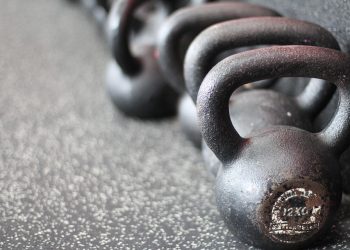The Science-Backed Guide to Weight Loss (38)
Losing weight can feel like navigating a minefield of conflicting advice and fad diets. But the truth is, sustainable weight loss is rooted in science and consistency, not magic pills or restrictive eating plans. This guide, backed by research and practical experience, provides a comprehensive roadmap to help you achieve your weight loss goals in a healthy and maintainable way. We’ll break down the key principles, debunk common myths, and offer actionable strategies you can implement today.
Understanding the Fundamentals: Energy Balance
At its core, weight loss boils down to energy balance – the relationship between the calories you consume and the calories you expend. To lose weight, you need to create a calorie deficit, meaning you burn more calories than you consume. This forces your body to tap into its stored energy reserves (fat) for fuel.
This sounds simple, but the complexities lie in accurately estimating your calorie needs and sustainably creating that deficit. Let’s explore the different components of energy balance:
- Basal Metabolic Rate (BMR): The number of calories your body burns at rest to maintain basic functions like breathing, circulation, and organ function. BMR accounts for the largest portion of your daily calorie expenditure.
- Thermic Effect of Food (TEF): The energy your body uses to digest, absorb, and metabolize food. Protein has the highest TEF, meaning your body burns more calories digesting it compared to carbohydrates or fats.
- Activity Energy Expenditure (AEE): The calories you burn through physical activity, including both structured exercise and everyday movements. This is the most variable component of energy expenditure.
- Non-Exercise Activity Thermogenesis (NEAT): The energy expended for everything we do that is not sleeping, eating, or sports-like exercise. It ranges from the energy expended walking to work, typing, performing yard work, fidgeting, and even standing.
Calculating Your Calorie Needs: A Starting Point
While precise calorie calculations can be tricky, you can use online calculators or consult with a registered dietitian to estimate your daily calorie needs based on your age, gender, height, weight, and activity level. These calculators provide a good starting point, but remember that they are just estimates. You’ll need to monitor your weight and adjust your calorie intake accordingly.
Example: A 35-year-old woman, 5’6″ tall, weighing 160 pounds, and moderately active might have a daily calorie need of around 2000 calories to maintain her weight. To lose weight, she might aim for a deficit of 500 calories per day, consuming 1500 calories daily.
Creating a Sustainable Calorie Deficit: Diet and Exercise
There are two primary ways to create a calorie deficit: by reducing your calorie intake through diet and by increasing your calorie expenditure through exercise. A combination of both is generally the most effective and sustainable approach.
Dietary Strategies for Weight Loss
The type of foods you eat plays a crucial role in weight loss and overall health. Focus on nutrient-dense foods that provide essential vitamins, minerals, and fiber while keeping you feeling full and satisfied.
- Prioritize Protein: Protein is highly satiating, meaning it helps you feel fuller for longer, which can lead to reduced calorie intake. Aim for 0.8-1.2 grams of protein per pound of body weight, depending on your activity level. Good sources of protein include lean meats, poultry, fish, eggs, beans, lentils, tofu, and Greek yogurt.
- Load Up on Fiber: Fiber-rich foods like fruits, vegetables, and whole grains add bulk to your meals, promoting satiety and regulating blood sugar levels. Aim for at least 25-30 grams of fiber per day.
- Choose Whole, Unprocessed Foods: Processed foods are often high in calories, unhealthy fats, and added sugars, while being low in nutrients and fiber. Focus on whole, unprocessed foods like fruits, vegetables, lean proteins, and whole grains.
- Limit Sugary Drinks: Sugary drinks like soda, juice, and sweetened coffee are a major source of empty calories that contribute to weight gain. Replace them with water, unsweetened tea, or sparkling water.
- Be Mindful of Portion Sizes: Even healthy foods can lead to weight gain if consumed in excess. Pay attention to portion sizes and use smaller plates and bowls to help control your intake.
- Plan Your Meals: Meal planning can help you stay on track with your weight loss goals by ensuring you have healthy and balanced meals readily available. This can prevent impulsive unhealthy food choices.
Exercise Strategies for Weight Loss
Exercise not only burns calories but also improves your overall health, boosts your metabolism, and helps you build muscle mass. Muscle tissue burns more calories at rest than fat tissue, so building muscle can contribute to long-term weight management.
- Cardiovascular Exercise (Cardio): Activities like running, swimming, cycling, and dancing are effective for burning calories and improving cardiovascular health. Aim for at least 150 minutes of moderate-intensity cardio or 75 minutes of vigorous-intensity cardio per week.
- Strength Training: Lifting weights or using resistance bands helps build muscle mass and increase your metabolism. Aim for at least two strength training sessions per week, targeting all major muscle groups.
- Increase NEAT: Look for opportunities to increase your daily movement, such as taking the stairs instead of the elevator, walking during your lunch break, or standing while working.
Beyond Diet and Exercise: The Importance of Lifestyle Factors
While diet and exercise are crucial for weight loss, other lifestyle factors can also significantly impact your progress.
- Sleep: Lack of sleep can disrupt hormones that regulate appetite, leading to increased cravings and overeating. Aim for 7-9 hours of quality sleep per night.
- Stress Management: Chronic stress can elevate cortisol levels, which can promote fat storage, especially in the abdominal area. Practice stress-reducing techniques like meditation, yoga, or spending time in nature.
- Hydration: Drinking plenty of water can help you feel fuller, boost your metabolism, and aid in digestion. Aim for at least 8 glasses of water per day.
- Mindful Eating: Pay attention to your hunger and fullness cues, and avoid eating while distracted or emotional. Practice savoring each bite and eating slowly.
Debunking Common Weight Loss Myths
The weight loss industry is rife with misinformation and fad diets that promise quick results but often lead to disappointment and even harm. Let’s debunk some common myths:
- Myth: Crash diets are the best way to lose weight quickly. Fact: Crash diets can lead to muscle loss, nutrient deficiencies, and a rebound effect, where you regain the weight you lost and often more.
- Myth: Carbs are the enemy. Fact: Carbs are an important source of energy. Focus on complex carbohydrates like whole grains, fruits, and vegetables, and limit processed carbs and added sugars.
- Myth: You need to cut out all your favorite foods. Fact: Restricting yourself too much can lead to cravings and binge eating. Allow yourself occasional treats in moderation as part of a balanced diet.
- Myth: Supplements are necessary for weight loss. Fact: Most weight loss supplements are ineffective or even harmful. Focus on a healthy diet and exercise, and consult with a doctor before taking any supplements.
- Myth: Eating late at night causes weight gain. Fact: It’s not the time of day you eat, but the total calories you consume that matters. However, eating late at night can disrupt sleep patterns and lead to poor food choices.
Tracking Your Progress: Staying Accountable
Tracking your progress can help you stay motivated and identify areas where you need to make adjustments. Here are some ways to track your weight loss journey:
- Weigh Yourself Regularly: Weigh yourself once or twice a week at the same time of day to monitor your progress. Don’t get discouraged by fluctuations in weight, as they are normal.
- Take Measurements: Measure your waist, hips, and other body parts to track changes in body composition.
- Keep a Food Journal: Record everything you eat and drink to gain awareness of your calorie intake and identify areas where you can make improvements.
- Track Your Exercise: Keep track of your workouts to monitor your progress and stay motivated.
- Take Photos: Take photos of yourself regularly to visually track your progress.
Overcoming Plateaus: Adjusting Your Strategy
It’s common to experience weight loss plateaus, where your weight loss stalls despite following your diet and exercise plan. This happens because your body adapts to the changes you’ve made, and your metabolism may slow down. Here are some strategies to overcome plateaus:
- Re-evaluate Your Calorie Intake: As you lose weight, your body requires fewer calories to maintain its weight. Recalculate your calorie needs and adjust your intake accordingly.
- Increase Your Activity Level: Try increasing the intensity or duration of your workouts, or incorporate new activities into your routine.
- Vary Your Diet: Introduce new healthy foods into your diet to keep things interesting and prevent boredom.
- Focus on Strength Training: Building more muscle mass can help boost your metabolism and overcome plateaus.
- Prioritize Sleep and Stress Management: Lack of sleep and chronic stress can hinder weight loss.
Seeking Professional Guidance: When to Consult an Expert
While this guide provides a comprehensive overview of weight loss, it’s important to consult with a healthcare professional, such as a doctor, registered dietitian, or certified personal trainer, if you have any underlying health conditions, are taking medications, or are unsure how to proceed. They can provide personalized guidance and support to help you achieve your weight loss goals safely and effectively.
Practical Tips for Long-Term Success
Weight loss is a journey, not a destination. Here are some practical tips to help you maintain your weight loss in the long term:
- Make Sustainable Changes: Focus on making gradual, sustainable changes to your diet and lifestyle that you can maintain for the long term. Avoid restrictive diets and quick fixes.
- Stay Consistent: Consistency is key to long-term success. Stick to your healthy habits even when you’re not seeing immediate results.
- Build a Support System: Surround yourself with supportive friends, family, or a weight loss group to help you stay motivated and accountable.
- Celebrate Your Successes: Acknowledge and celebrate your achievements along the way, no matter how small.
- Learn from Setbacks: Don’t get discouraged by occasional setbacks. Learn from them and get back on track as soon as possible.
- Focus on Overall Health: Remember that weight loss is just one aspect of overall health. Focus on eating a balanced diet, exercising regularly, getting enough sleep, and managing stress for optimal well-being.
Weight Loss Medications and Surgery
In some cases, weight loss medications or surgery may be considered for individuals who are severely obese or have obesity-related health conditions. These options are typically reserved for those who have not been successful with diet and exercise alone and should be discussed with a healthcare professional.
The Psychology of Weight Loss
Weight loss is not just a physical process; it’s also a psychological one. Your mindset, beliefs, and emotions can significantly impact your success. Addressing emotional eating, developing positive self-talk, and building resilience are crucial for long-term weight management.
Staying Motivated: Finding Your “Why”
It’s essential to have a strong “why” behind your weight loss goals. Whether it’s improving your health, boosting your confidence, or being able to participate in activities you enjoy, having a clear purpose can help you stay motivated when faced with challenges. Regularly remind yourself of your “why” to stay focused on your goals.
Navigating Social Situations
Social situations, such as parties, holidays, and eating out, can be challenging when you’re trying to lose weight. Plan ahead, make healthy choices when possible, and don’t be afraid to communicate your needs to others. It’s okay to indulge occasionally, but be mindful of your overall calorie intake.
The Role of Gut Health
Emerging research suggests that gut health may play a role in weight management. A diverse and healthy gut microbiome can influence metabolism, appetite, and inflammation. Eating a diet rich in fiber, probiotics, and prebiotics can promote a healthy gut microbiome.
Weight Loss and Aging
As we age, our metabolism naturally slows down, and we tend to lose muscle mass. This can make weight loss more challenging. However, it’s still possible to lose weight and maintain a healthy weight as we age by focusing on a healthy diet, regular exercise, and strength training.
The Importance of Self-Compassion
Be kind and compassionate to yourself throughout your weight loss journey. There will be times when you slip up or don’t meet your goals. Don’t beat yourself up over it. Acknowledge your mistakes, learn from them, and move on. Self-compassion is essential for building resilience and staying motivated.
Conclusion
Weight loss is a complex process that requires a multifaceted approach. By understanding the principles of energy balance, adopting healthy eating habits, engaging in regular exercise, managing stress, and prioritizing sleep, you can achieve your weight loss goals and maintain a healthy weight for the long term. Remember that consistency, patience, and self-compassion are key to success. Consult with a healthcare professional for personalized guidance and support. This science-backed guide provides a solid foundation for your weight loss journey, empowering you to make informed choices and achieve sustainable results. It’s not about a quick fix; it’s about building a healthier, happier you.
Frequently Asked Questions (FAQs)
- How much weight can I expect to lose per week?
A healthy and sustainable rate of weight loss is generally considered to be 1-2 pounds per week. This allows your body to adjust gradually and reduces the risk of muscle loss and nutrient deficiencies. - What is the best diet for weight loss?
There is no one-size-fits-all diet for weight loss. The best diet is one that you can stick to long-term and that aligns with your individual preferences and needs. Focus on eating whole, unprocessed foods, prioritizing protein and fiber, and limiting sugary drinks and processed foods. - Is exercise necessary for weight loss?
While diet is crucial for creating a calorie deficit, exercise plays a vital role in weight loss and overall health. Exercise helps you burn calories, build muscle mass, boost your metabolism, and improve your cardiovascular health. - How do I deal with cravings?
Cravings are normal and can be managed by addressing the underlying causes, such as stress, boredom, or emotional eating. Trydistracting yourself, drinking water, or choosing a healthier alternative. Allowing yourself occasional treats in moderation can also help prevent cravings. - What if I experience a weight loss plateau?
Weight loss plateaus are common. Re-evaluate your calorie intake, increase your activity level, vary your diet, focus on strength training, and prioritize sleep and stress management. - Are weight loss supplements safe and effective?
Most weight loss supplements are not effective and can even be harmful. It’s best to focus on a healthy diet and exercise and consult with a doctor before taking any supplements. - How can I stay motivated on my weight loss journey?
Find your “why” and regularly remind yourself of your goals. Build a support system, track your progress, celebrate your successes, and learn from setbacks. - Can I still eat out while trying to lose weight?
Yes, you can still eat out while trying to lose weight. Plan ahead, choose healthier options, be mindful of portion sizes, and don’t be afraid to ask for modifications. - What is mindful eating?
Mindful eating involves paying attention to your hunger and fullness cues, eating slowly, savoring each bite, and avoiding distractions while eating. It can help you develop a healthier relationship with food and prevent overeating. - Is it okay to have cheat meals?
Allowing yourself occasional treats or “cheat meals” in moderation can help prevent feelings of deprivation and make your diet more sustainable. However, be mindful of the frequency and portion sizes of your cheat meals.












